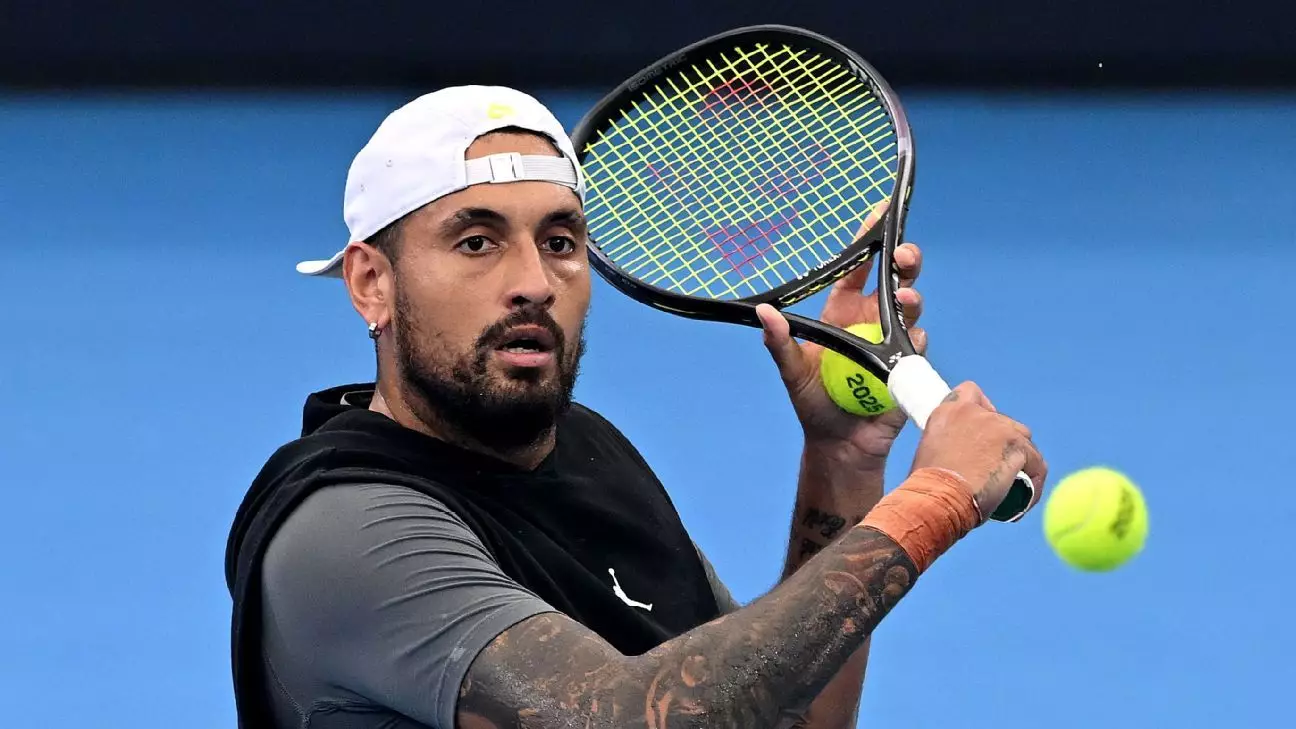The world of tennis has been enveloped in controversy after two prominent stars, Jannik Sinner and Iga Swiatek, faced serious allegations regarding breaches of the sport’s anti-doping program. Nick Kyrgios, a figure known for his candid opinions and propensity for stirring dialogue, has taken a strong stance against this troubling situation. By questioning the integrity of the sport, Kyrgios sheds light on the imperative need to maintain the true essence of competition and the ethical standards that underpin it.
Tallied among the sport’s elite, both Sinner and Swiatek find themselves at a crossroads that not only affects their personal careers but also the integrity of tennis itself. Sinner, ranked world No. 1, tested positive for an anabolic steroid twice within a single month, while Swiatek, a former top player, was temporarily suspended after testing positive for a banned substance. While each athlete was able to navigate these charges without facing extensive repercussions—a one-month suspension for Swiatek and an exoneration for Sinner—Kyrgios’s ire is illustrative of a broader concern. He vocally criticized the duplicity of the situation, invoking a sense of betrayal among those who compete honestly.
Kyrgios’s remarks encapsulated a sentiment felt among many observers: the revelation that top athletes might be leveraging performance-enhancing drugs severely tarnishes the image of this storied sport. “It’s a horrible look,” he stated, highlighting the disappointment felt by younger players and fans alike. In a sport that prides itself on skill, agility, and endurance, the association of doping with prominent names like Sinner and Swiatek is nothing short of a scandal.
Motivation Behind the Outcry
At the heart of Kyrgios’s call for accountability lies a personal narrative shaped by his injuries and struggle to maintain competitive integrity. Having been sidelined since June 2023 due to persistent wrist and knee issues, he contemplates the easy avenues of recovery that illicit methods could provide. Yet, he resolutely maintains that doping is beneath him. “I will never… try to dope in this sport,” he asserted with fervor, emphasizing that true athletes must respect the hard work and dedication that define their journey.
Kyrgios’s perspective is poignant; it questions the moral fiber of athletes who might compromise their principles for the sake of victory. His insistence that cheating is far worse than emotional outbursts on the court delineates the boundaries of acceptable behavior. His critique begs the question: if athletes are willing to sacrifice their integrity, what message does that send to aspiring players who idolize them?
Adding further layers to his criticism, Kyrgios raised important inquiries about the accountability mechanisms within the sport. He pointed out the inconsistencies in how athletes are treated following violations. For instance, Sinner’s explanation regarding accidental contamination via a physiotherapist raises eyebrows about team protocols and professionalism. “Why did they wait five to six months to do anything about it?” Kyrgios queried. Such lapses only serve to undermine the credibility of anti-doping efforts and create an impression of a double standard.
His critique of Sinner’s management team espouses a significant concern: accountability begins at home. If elite athletes surround themselves with professionals who fail to prioritize their integrity, then they, too, are complicit in diluting the trust that fans place in the sport.
Kyrgios’s outspokenness, often derided by critics, emerges as a necessary catalyst for change. He recognizes a silence that blankets the sport and urges fellow players and stakeholders to address the pressing issues of integrity head-on, rather than relegating such conversations to whispers in the locker room.
In an age where performance optimization often teeters on the edge of ethics, Kyrgios’s call for vigilance and accountability is both necessary and commendable. It compels tennis to confront its challenges, fortify its policies, and ensure that the individuals representing the sport embody the ideals it professes. By vocalizing his concerns, Kyrgios not only reaffirms his own integrity but also serves as a voice for the unspoken anxieties of many involved in tennis—athletes, fans, and purists alike.
Through this tumultuous episode, collective action is warranted to uphold the sanctity of competition, ensuring that genuine talent reigns supreme on the courts.


Leave a Reply